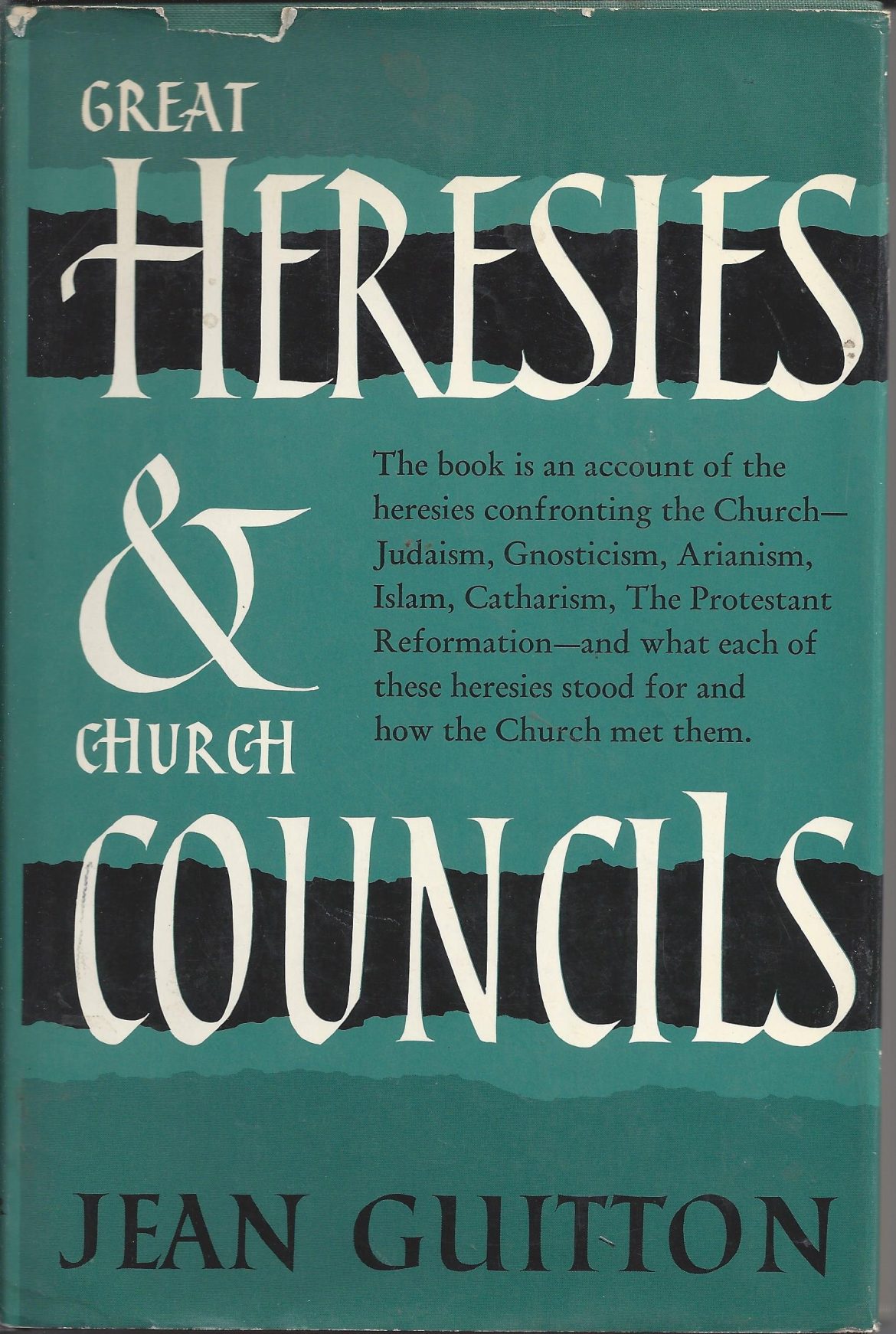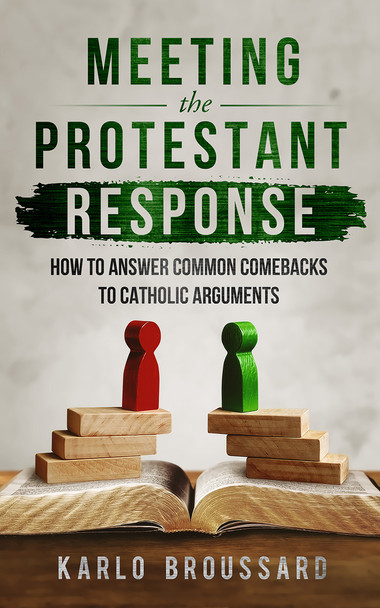“Great Heresies and Church Councils” by Jean Guitton
I heard about this book on Gary Michuta’s podcast where he was talking with former Catholic Answers President Karl Keating. Over the last year or so, his talking with Karl on classic apologetics and history books has led often the need to hunt them down. Be warned, this one is out of print and I hunted up a copy via an online used book store. It is worthwhile to get. Although, you can read it online via this Internet Archive Link.
As a history of the various heresies in Church history, it is not just a relaying of all those details capably done by so many authors in the past. If you want an in-depth history with all those details, this is not the book to get. This is supplemental to them.
This is a very insightful bird’s-eye view of these heresies and the response by Church councils to them. He has a way of helping you to see deeper and to see commonalities and other dispositions that led to these heresies. The very-human way that mysteries are often simplified to the point of being easily explained, but mistakenly erasing the mystery.
- Definition and Dates
- Judaism
- Gnosticism
- Arianism
- Islam
- Catharism
- The Protestant Reformation
- The New Dismemberment
Here are some highlights I made from the chapter on the Protestant Reformation.”
But once a conscience or a culture has been infused with Christianity, it cannot ever again return to an earlier age that seems more spacious, more indifferent, without denying Christianity at first in fact, later in principle; it cannot return to a state of ‘nature’ or of ‘reason’ like that of the Greeks or even of the Jews before Christ. A full-grown man cannot return to inarticulate and fresh childhood without risking infantilism. The flow of time cannot be reversed. Our ship is headed toward the high sea. Deism or humanism in the post-Christian era will not be like the deism or humanism of antiquity. Modern deism and humanism must inevitably follow the fateful decline that ends up in an anthropocentric religion opposed to traditional Christianity. (Pg 147)
We are here faced again with that theologico-political phenomenon of which I spoke on several occasions. But this time it assumed unparalleled proportions–proportions co-extensive with all culture and civilization. This collusion of the two causes has lent a certain ambiguity to the rise and expansion of the world of the Reformation. For it makes the Reformation seem similar to the other heresies known to history- at least on first sight.
In fact, we here encounter once again the hidden rhythm, the living dialectic of the great revolutions of consciences in revolt. We see their scandal at abuse, their intransigence, their purity, their inflexibility, their willingness to accept the worse in order to save the true, their hope of a new start in Christianity. We also see their anguish, their inner fragmentation, their fatal alliance with others who are less pure, and finally the impossibility of their return to that first stage when their innovation Was still a development and a reform which were acceptable and desirable within the Church. (Pg 149)
I said that all ‘great heresies’ spoke the same language. Not one of them intended innovation. They all thought of themselves as a return to a primal purity that was not altogether lost but had been compromised everywhere except among the elect. This heroic love of integrity allowed them to face without trembling their rejection by the visible unity in order that they might save the invisible unity; once the separation had been consummated, they could find in it a somber and severe glory. (Pg 158)
I would say the words of St Augustine, so profound and so simple: ’If I oppose you, it is to give you the fulness.? Tibi contradico ut totum possideas. (Pg 182)





